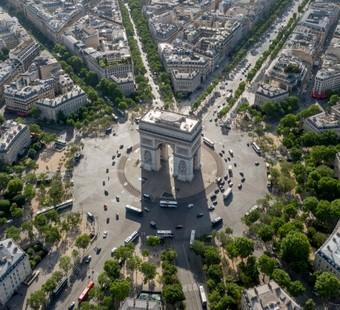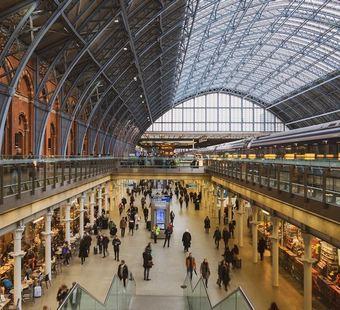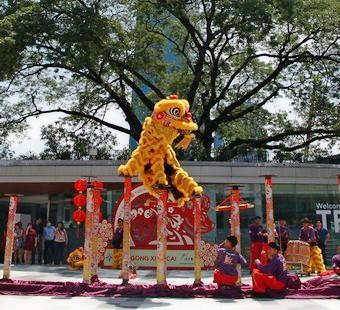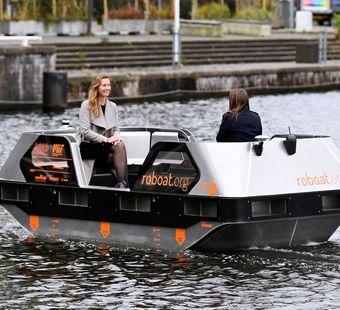As the world applauds climate champion Greta Thunberg and Kuala Lumpur kicks off its inaugural participation in the Global Climate Strike with a march in the dangerously hazy weather, events like the International Conference on World Class Sustainable Cities (WCSC) have become all the more urgent.
Now in its 11th year, the WCSC is designed as a platform to enlighten, educate and change the mindsets of city stakeholders, industry players, government agencies and the general public on the importance of developing liveable and sustainable cities.
Themed NEXT: KL2040, WCSC 2019 explored how Malaysian cities can tackle the challenges of urbanism in a sustainable way.
The recently concluded conference featured Stuart Moseley, CEO of the Victoria Planning Authority, who shared how Melbourne maintains its status as a world-class, liveable city, and Franst Anton Vermast, Strategy Advisor and Ambassador of Amsterdam’s Smart City initiative, who talked about how to form a successful public-private partnership.
Local highlights included a session by Muhammad Azmi Zulkifly, acting CEO of InvestKL on making Greater KL a regional hub of choice, a presentation by the winners of the Young People’s Lab 2019 on the role of social hubs for young people in a sustainable city, while Dr. Ceelia Leong, the Spatial Analyst and Programme Manager at Think City offered recommendations on how to regenerate downtown KL into a creative and cultural district.
In his speech opening the event, Federal Territories Minister, Khalid Abdul Samad, discussed the KL City Plan 2020-2040 which addresses key issues such as demographic changes, climate change, technology disruptions and scarcity of land.
“We need to consider different viewpoints in our efforts to turn Kuala Lumpur into an internationally-acclaimed sustainable city within the next 20 years,” Khalid said.
Global education, local implementation
“Sustainable development is a growing global movement,” Husam, who is also a certified Green Building Consultant in Malaysia, USA, and the Middle East explained.
“I remember just a decade ago, we had to work hard to convince clients and governments to be more environmentally conscious and energy-efficient. Today, they proactively request it in our designs. This shows true progress.”
Reflecting this demand, WCSC has featured success stories on sustainable development from all over the world. These included the Cheongyecheon River restoration in Seoul, Korea, Brazil’s Curitiba city transportation solutions, Hong Kong and Singapore’s covered walkway systems, and the transformation of Kaohsiung, Taiwan from an industrial polluter to an ecological tourism hub.
These case studies have been instructive in helping Malaysia shape its policies and plans.
KL’s River of Life (RoL), for example, transformed the murky Klang River through cleaning, beautification, and commercialization. Despite still being in progress, the RoL project has already been named one of the top 10 waterfront districts in the world by the United Kingdom’s Independent news portal.
In the same vein, the Tun Razak Exchange (TRX), Malaysia’s up and coming financial district, has embarked on a comprehensive on-site water treatment programme that will recycle water for non-potable use throughout the district. The on-site treatment plant is projected to reduce TRX’s fresh water demand by up to half, making it the first commercial water reclamation project of its kind in Southeast Asia.
Public incentive, private initiative
Current initiatives in Malaysia was a hot topic at WCSC this year. Participants were encouraged by recent statements by Yeo Bee Yin, Minister of Energy, Science, Technology, Environment, and Climate Change, who insisted that Malaysia needs to invest RM33 billion from the government, public-private partnerships and private financing, in order to achieve its target of 20 percent electricity generation from renewable energy (RE), sources by 2025.
She had also confirmed the continuation of government incentives such as the Green Technology Financing Scheme and the Green Investment Tax Allowance in support of RE programmes.
Industry professionals also discussed how everyone can do their part to advocate for greener building and city projects.
“In order to create a holistic sustainable city, the people must be empowered to act as local sustainability champions and to contribute their ideas to local governments,” Ar Ridha Razak, Managing Partner at Abraz Architect, green building facilitator and working committee member of WCSC 2019 said.
“This can only happen if they start being sustainable at home, such as by recycling or installing rainwater systems where they can enjoy rebates from their city council.
“Likewise, building professionals must start having more conversations on creating low carbon cities with the bigger goal of creating zero-carbon cities and communities in the next decade.
“A sustainable development project will be successful if all stakeholders work together towards a common goal, creating a better future for our children,” he concluded.
---
Photo source: http://wcsckl.com







